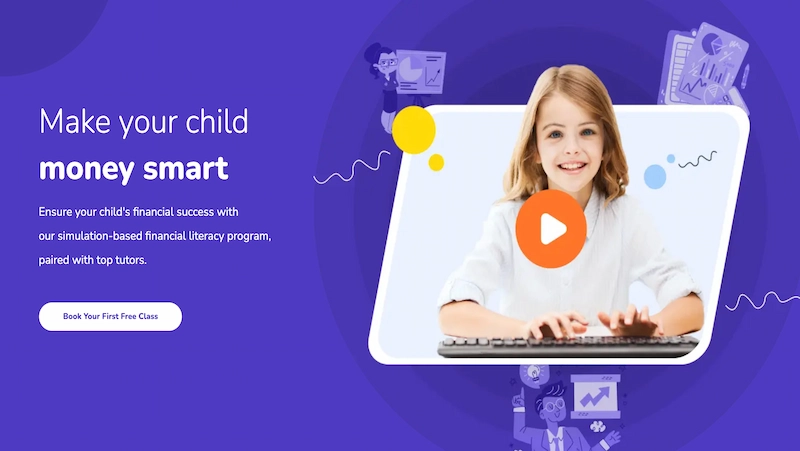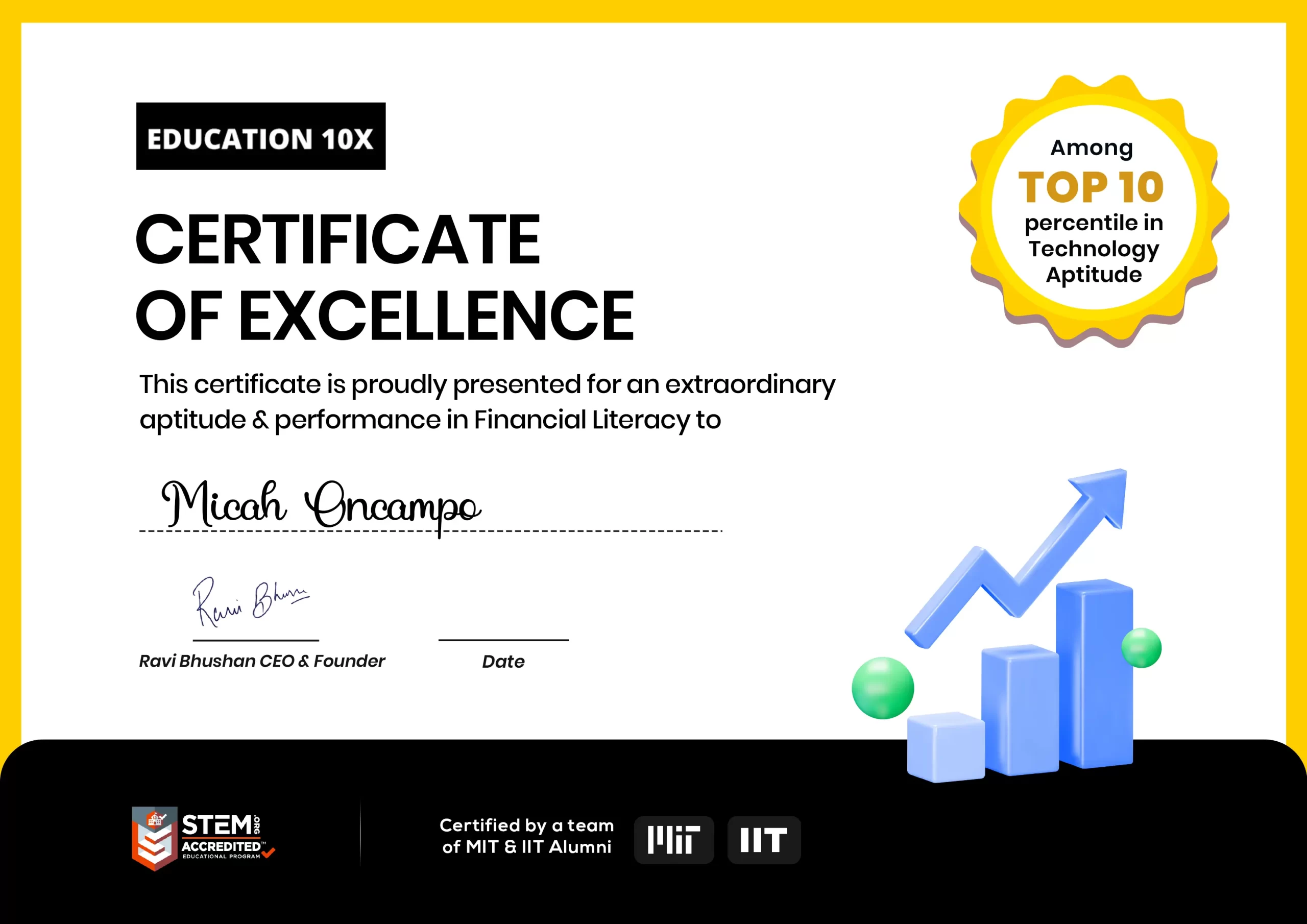Finance for kids is a necessary 21st-century skill. It is a skill that teaches kids to manage their finances i.e., to earn, budget, save, invest, and protect money intelligently.
Kids need to develop good financial habits early in life so that they can manage their money better when they step out into the real world. Teaching kids about money is important for their future financial success and well-being. Here are a few important Tips to help you achieve the same for your kids.
Before diving into the blog, You can check out the video.
Table of contents
Age-appropriate financial education
There is a need for a gradual approach as regards imparting financial education to kids as they grow from 3-11 years and evolve from kindergarten to grade 5. Kids at younger ages need to learn the basics concepts of- what money is, counting bills and coins, making a purchase, and getting the due amount back. With age, they can be introduced to concepts of saving, investing surplus money, and risk-return relationship while making investing decisions.

Parents should start by introducing the basic concepts of money and its value to kids in early childhood. As parents, start with helping kids to identify and count coins and money. Use financial literacy games for kids and toys to make the experience fun for your kids. Basic concepts of Pocket money, saving in a Piggy Bank and spending can be introduced in the age group of 7-10 years.
Thereafter, pre-teens’ financial education needs to be focused on earning, budgeting, and saving money and gradually ideas for investment. Encourage kids to earn money by doing chores or selling crafts. Parents can start by making the weekly shopping trip to the grocery store a fun way to teach kids how to compare prices and shop smartly. High school kids must be introduced to investing and financial concepts like the Time value of money, rate of interest, inflation and compound growth, and setting realistic financial plans for their life goals.
Setting a Good Financial Example
Kids learn from observing their parents’ habits and attitudes toward money. They benefit from having open and honest conversations about money with their parents. As such, sharing your own financial experiences and challenges is an important step. Surprisingly, financial decisions are not part of the dinner table discussions in most families, as parents are shy to share their toils and worries in managing money issues in the presence of their kids.
This creates a learning void when the kids have no relatable incident or measure to help them make independent financial decisions later in life. Parents should always encourage communication with regard to money decisions and reinforce good financial decisions by their kids while avoiding making negative comments or judgments about money. Know more about finance for kids to make kids learn about money from a young age.

Budgeting and Saving
To impart financial education to kids, parents can start by encouraging them to delay instant gratification. The idea that they need to save for the next toy because it is twice their weekly pocket money amount needs to be taught and imbibed. The simplest way is to budget their expenses and let them save up for their much-wanted toy. Do take kids into confidence while planning your next car, house, or vacation. The money required to be set aside, the saving being utilized, EMIs/ borrowing cost, and their effect on monthly budgets, needs to be discussed by parents so that the kids can learn the process of spending money intuitively.
FinChamps by BrightChamps offers an excellent platform for kids to learn about saving and budgeting for kids. Through interactive activities and engaging lessons, FinChamps equips children with essential financial skills from an early age.
Using child-friendly language and relatable scenarios, FinChamps teaches kids the importance of budgeting and the concept of saving money. Children learn how to set financial goals, make wise spending decisions, and allocate their resources effectively. The program introduces them to basic budgeting principles, such as distinguishing between needs and wants, prioritizing expenses, and planning for the future.

FinChamps utilizes interactive simulations and games that allow kids to practice real-life financial scenarios. They learn to make choices within limited resources, such as allocating money for different purposes or saving for a specific goal. By actively participating in these activities, children develop critical thinking and problem-solving skills while gaining a deeper understanding of financial management.
Additionally, FinChamps incorporates elements of rewards and incentives to motivate children to save money. Through virtual savings accounts and simulated financial transactions, kids can experience the gratification of saving towards a goal and witnessing their progress. This hands-on approach creates a positive association with saving and encourages responsible financial habits.
With FinChamps, children not only acquire practical skills but also cultivate a mindset of financial responsibility. They develop an understanding of the value of money, learn to make informed decisions, and build a foundation for a secure financial future. Through its engaging and interactive approach, FinChamps by BrightChamps provides an invaluable learning experience that empowers kids to become financially savvy individuals.
Earning and Spending
Parents need to explain how their money is earned. Usually, primary school-going kids have a belief that parents have limitless cash that can be drawn from the ATM or swiped off a credit card. Tell your kids how you earn your salary and how you manage your monthly expenses from the limited money. Also you can give credit card for kids, So they can understand properly how it is working. This will help them appreciate the effort and planning that goes into earning and spending money. Explain to them how these transactions work, what the benefits and costs involved, and how they affect your monthly family budget. This will help them learn about the different ways money can be used and the consequences of their choices.
As parents of kids in their pre-teens, allow them to handle their own money. Give them a monthly allowance or pocket money that they can use to buy things they want. Encourage them to save some of their money for bigger purchases or long-term goals. This will help them track their income and expenses, and learn about decision-making and goal-setting with money. Teach kids that money can be earned through work, creativity, and entrepreneurship. Help them find ways to increase their income by doing extra chores, selling crafts or services, or starting a small business. This will help them learn about the value of hard work, the power of saving and investing.
Investing and Planning for the Future

As kids head into their Teens, parents can open a custodial saving account that allows them to invest on behalf of their child until they reach a certain age, usually 18 years of age. Once you have an investment account for your kid, you can help them decide what to invest in, based on their risk tolerance, time horizon, and interests. You can start with simple and low-cost investments such as Fixed deposits, index funds, or exchange-traded funds (ETFs) that track the performance of the broader stock market.
You can also gradually let them dabble limited amounts in individual stocks or bonds that represent companies or entities they are familiar with or passionate about. Explain to your kids how investing works and how it can help them grow their money over time.
You can also help them set up a realistic financial plan for their short-term and long-term goals, such as going to college or buying a car. Help them write down their goals and track their progress regularly. Encourage them to spend less than they earn, while saving for their goals. This will help them learn about budgeting, saving, and spending mindfully.
Conclusion
Parents should teach their kids about money from an early age and keep the conversation going as they grow up. Gradually, start giving the kids some financial responsibility. Allow them to manage their own money through an allowance, or a savings account, help them set financial goals and track their progress, let them learn from their mistakes, and thereby learn to be financially prudent.
Finally, parents need to understand that financial education for kids is not a one-time event, but a lifelong process. By starting early and staying consistent, you can help your kids develop a healthy and confident relationship with money that will serve them well throughout their lives.

Enter the exciting world of FinChamps, an innovative financial literacy program brought to you by BrightChamps. With FinChamps, children embark on a captivating learning journey where they become financial superheroes. Through interactive games, engaging activities, and real-world simulations, FinChamps equips kids with essential money management skills, teaching them the value of saving, budgeting, and making wise financial decisions.
To get your hands on more such educational, parenting and free resources on coding, robotics, game development, etc., do check out the Brightchamps Blog Page now!
This dynamic program not only ignites a passion for financial literacy but also instills confidence, critical thinking, and problem-solving abilities. Join the FinChamps revolution and watch your child soar to new heights of financial intelligence and success.
Frequently Asked Questions
Financial education for kids in early childhood can be introduced to counting coins and money. Basic concepts of Pocket money, saving in a Piggy Bank and spending can be introduced in the age group of 7-10 years.
A 3-year-old may not understand all the functions and concepts related to money. However, parents can start financial education for kids by teaching them to count and identify coins and currency notes. They can be introduced to the idea of exchanging money to buy goodies.
‘Smart Money Smart Kids’ is a book by Dave Ramsey and his daughter Rachel Cruze that teaches parents how to raise money-smart kids by focusing on topics such as work, spending, saving, giving, budgeting, debt, college, and contentment for kids of all ages, from toddlers to teens. Therefore, ‘smart money smart kids’, is for any age, as long as the parents tailor the lessons to their child’s developmental level.
Yes, parents should teach their kids about money because it is an essential 21st-century life skill that can help them become financially responsible and successful adults.
Kids’ intelligence is influenced by many factors, such as genetics, environment, education, motivation, and personality. However, studies suggest that financially suave parents help their kids develop their cognitive abilities by providing a stimulating and supportive environment that fosters critical thinking and problem-solving skills when it comes to financial literacy and money management.
The very fact that you have found time to visit this blog is evidence of your interest to impart financial education to your kids. You can start by following the tips mentioned in the blog about saving, spending wisely, investing, and planning for the future. Encourage them to learn from their mistakes and understand the risks while taking money decisions.
Parents can increase their kid’s financial IQ by exposing them to various financial topics and concepts that are appropriate for their age as mentioned in the blog. Parents can use various resources such as books, websites, podcasts, games, or apps that offer financial education for kids.
Parents using money to motivate kids can be beneficial if it is used to reward effort and encourage good financial habits in kids like saving, investing, and financial planning.










